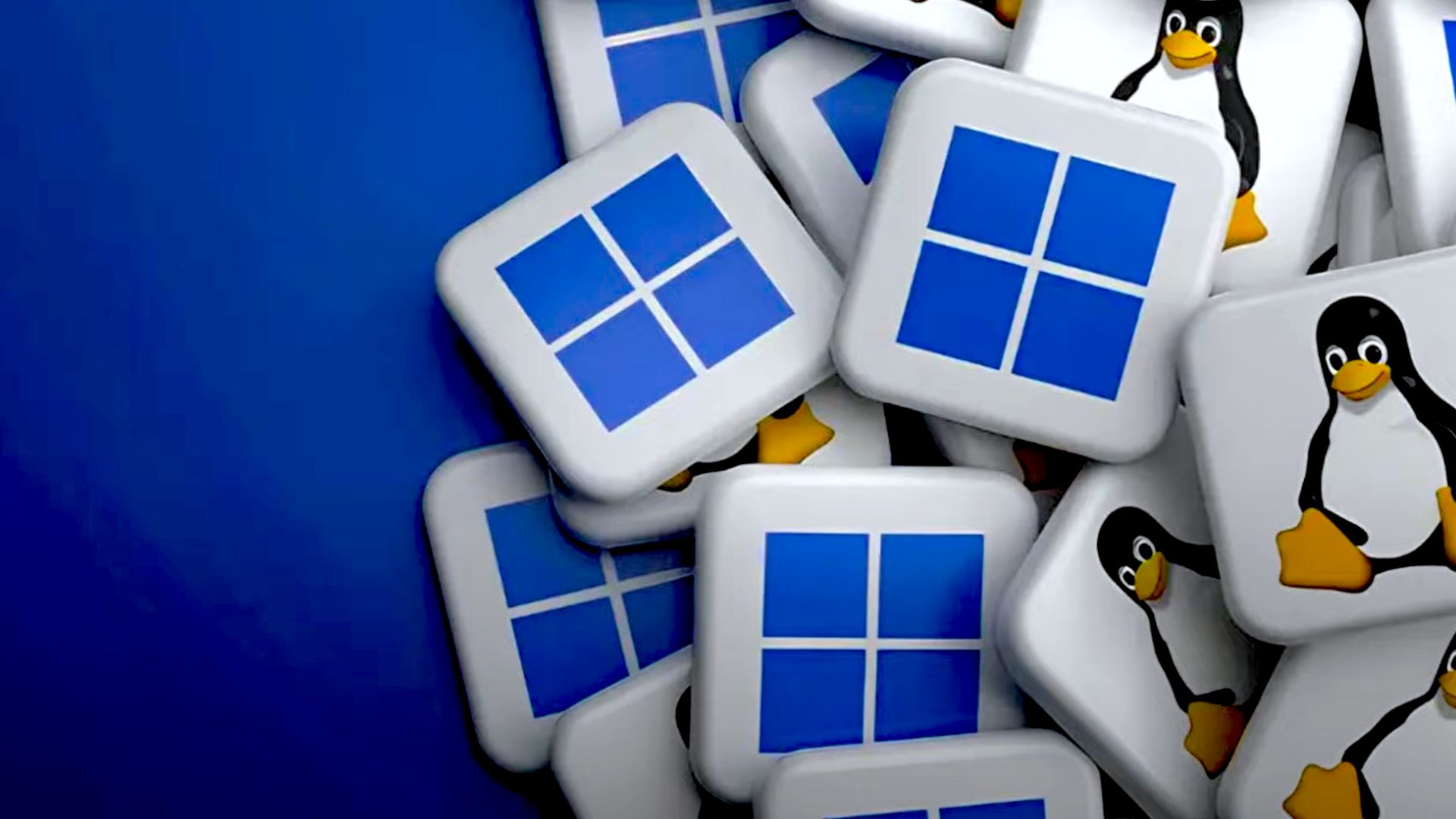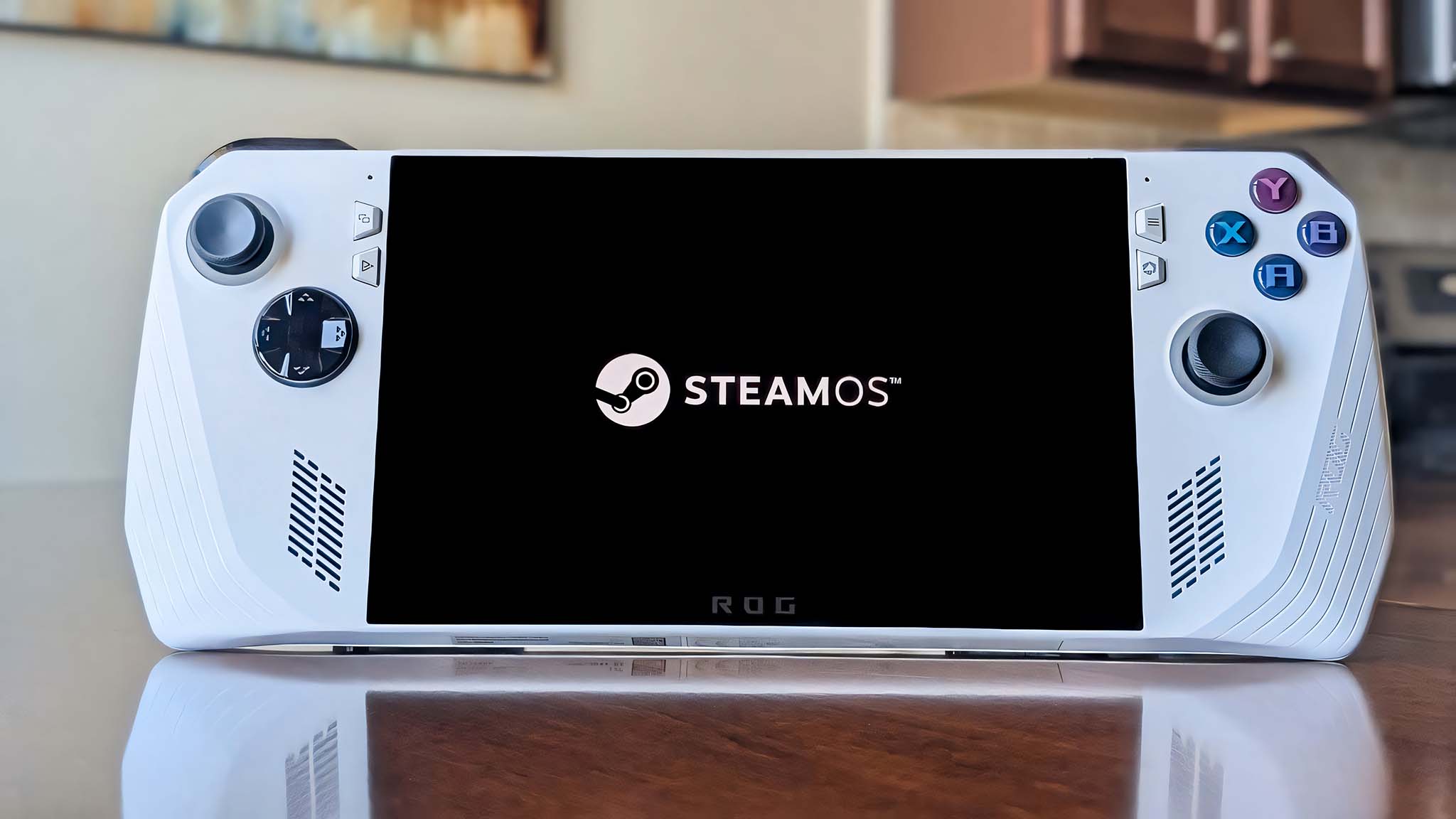Linux gaming just hit a major milestone — is Windows in trouble?
Linux is now used by 3% of gamers on Steam, as handheld PCs and rising Windows frustrations fuel fresh momentum.

All the latest news, reviews, and guides for Windows and Xbox diehards.
You are now subscribed
Your newsletter sign-up was successful
Reported on by VideoCardz, the latest Steam Hardware Survey shows Linux reaching 3.05% of all Steam users for the first time. That is up from around 2% this time last year, which is a solid jump for a platform that has historically struggled to crack mainstream gaming adoption.
Windows has seen a small decline, dropping from roughly 95% to 94.84% of Steam users. macOS currently sits at 2.11%, which is slightly higher than I expected, given macOS isn’t particularly known for gaming.
Linux still has a long road if it hopes to become a true competitor to Windows in gaming. However, milestones like this suggest that more players are paying attention, and the conversation around PC gaming operating systems could be shifting.
What’s driving Linux’s gaming surge?
SteamOS now accounts for roughly 27% of all Linux installs on Steam. This is an impressive achievement and reflects how the Steam Deck continues to bring more players into the Linux ecosystem without needing them to actively choose it. It is still going to take a long time before Linux can make any meaningful dent in Windows, but momentum is kind of building, albeit slowly.
Microsoft’s ongoing AI push, the end of life for Windows 10, and several unpopular user-experience decisions could encourage more PC gamers to explore alternatives. Linux is also becoming surprisingly performant in certain titles, and it already delivers strong results on handheld gaming PCs like the Steam Deck and even the Xbox Ally.
RELATED: How to install SteamOS on your Windows handheld
The Steam Deck is not hitting Nintendo Switch 2 sales numbers, but it has still sold millions since launch. It is also widely respected in the space and continues to be a reference point every time a new handheld PC arrives.
All the latest news, reviews, and guides for Windows and Xbox diehards.
SteamOS is not perfect, though. Many competitive multiplayer games rely on kernel-level anti-cheat systems, which Windows supports, and that means some players avoid SteamOS if their library includes titles that require it. For everyone else, SteamOS remains a strong option for handheld gaming.
For players who mostly enjoy single-player games, indie titles or do not play many competitive multiplayer games, it is hard to ignore how far Proton has come. Proton allows Windows-only games to run on Linux, and nearly 90% of games on Steam now work on Linux in some capacity. Not every game runs perfectly, but the fact that most of the Windows library is playable shows how far Linux gaming has progressed in a short period of time.
90% of Windows Games Are Now Playable on Linux (video) https://t.co/41apiQBkoJ#linuxgaming #windows #compatibility #steamdeck #proton #steamplayNovember 4, 2025
Is Windows in trouble? Not yet
Windows is still by far the dominant platform at almost 95% share, and Linux hitting 3% does not threaten that position any time soon. Still, it does show a real shift in momentum.
That momentum may be one of the reasons Microsoft is paying more attention to gaming on Windows. The introduction of the Xbox Ally, which runs a stripped-down version of Windows with a more console-like interface, is the closest partnership we have seen between Windows and the gaming ecosystem so far. It is not perfect, and it still feels like a beta for what could eventually be a polished gaming-first Windows experience, but it shows Microsoft understands it needs to adapt.
The question is not whether Linux overtakes Windows soon, but whether rising gamer frustrations and a rapidly growing handheld market can give Linux its biggest opportunity yet.
FAQ
What is SteamOS?
SteamOS is Valve’s Linux-based operating system, used on the Steam Deck. It accounts for around 27% of Linux installs on Steam and is a major reason Linux gaming is growing.
Do anti-cheat systems work on Linux?
Some do, but not all. Kernel-level anti-cheat used in certain competitive games still creates issues on Linux, which can stop multiplayer-focused games from working.

Follow Windows Central on Google News to keep our latest news, insights, and features at the top of your feeds!

Adam is a Psychology Master’s graduate passionate about gaming, community building, and digital engagement. A lifelong Xbox fan since 2001, he started with Halo: Combat Evolved and remains an avid achievement hunter. Over the years, he has engaged with several Discord communities, helping them get established and grow. Gaming has always been more than a hobby for Adam—it’s where he’s met many friends, taken on new challenges, and connected with communities that share his passion.
You must confirm your public display name before commenting
Please logout and then login again, you will then be prompted to enter your display name.

